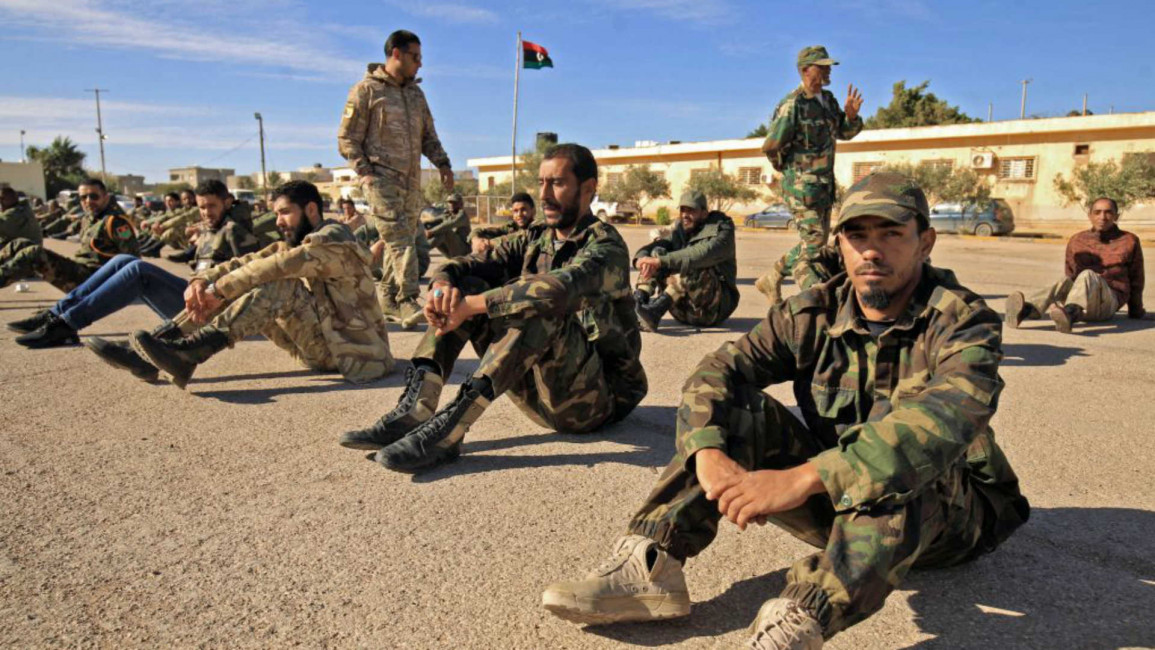
In Libya, Russia calls in its proxy, Assad
The conflict, which took on a new form in the years after the defeat and death of Muammar Gaddafi, now features a host of Libyan and foreign-backed forces.
First, the Government of National Accord, based in Tripoli. It is recognised by the United Nations, and in its defence, NATO's secretary-general has recently suggested the signatories of the North Atlantic Treaty ought to stand ready to intervene.
Then, there is rogue General Khalifa Haftar, commander of the self-proclaimed 'Libyan National Army' (LNA) and long-time claimant of power in Libya. His forces appear perpetually in the process of attacking Tripoli and attempting to depose its government.
The LNA and its allies are accused of terrible crimes in the process of a year-long campaign against Tripoli. But even that has had little effect. His forces have not yet seen success, and their campaign now looks to be on the back foot.
Behind Haftar are forces in strange combination. He has received weapons from France, tacit support from Italy, extensive behind the scenes assistance from the United Arab Emirates, Russian military contractors and more.
Bloomberg reports that in 2019, a team of 20 western mercenaries organised by the UAE, made elaborate and costly preparations for deployment in Libya. The mission included requisitioned helicopters and promised "a sophisticated operation that could interdict arms shipments from Turkey to the government of Tripoli using vessels and helicopters." They promised expertise in running drones, too.
But things took a turn in theatre. The group withdrew to Malta soon after arrival, where subsequently a supplier, James Fenech, has been charged with violating sanctions by assisting their ill-fated efforts.
Complicating this kaleidoscope is the involvement of factions from Syria's war.
 |
Russia has imported Syrians, scouring the parts of the country controlled by the regime for willing fighters |  |
Transplanted to fight in another civil conflict, they are increasingly significant on the battlefield. And their fates, relative to each other in this new terrain, exemplify the strangeness of modern warfare: how it can be transplanted to new places without the end of previous hostilities, and what truly motivates fighting men.
On the side of the GNA, Turkey has facilitated the passage of thousands of Syrian rebels, many of them armed and trained by Turkey, and operating under its close supervision, even in Syria.
Supporters of Haftar and some observers suggest these fighters are primarily jihadists, a description which has been carefully propagated and persistently dogs Syrians wherever they end up in the world. It is not accurate here.
Twitter Post
|
Those Syrians who fight against Haftar do so for cash. Perhaps ironically, they are better paid by Turkey to fight in Libya than in their own country.
Meanwhile, gravitating to Haftar's side are those who oppose Turkey in Syria, even while the Syrian war has reduced in ferocity due to interminable Russian and Turkish negotiation and the cutting of deals.
Russian Wagner Group mercenaries, happily backing yet another violent strongman in the Middle East, aid Haftar and make no bones about fighting Turkey's transplanted Syrian rebels.
Read more: Haftar may be on back foot, but for Libyans the struggle is far from over
Meanwhile Turkey continues something it began to do - with outrageous success - a few months ago in Syria, when a final, crushing assault on rebel-held areas by forces allied to the regime of Bashar al-Assad looked to be inevitable: it has begun to destroy prestige Russian air defence systems in Haftar's hands.
In a counterattack by GNA forces against Haftar's advance on Tripoli in April, Turkey used a storm of drones to attack significant targets. This storm has also destroyed Russian air defence systems, of the same kind which were wrecked by Turkish action during the abortive regime attack on Idlib earlier this year.
Turkish pro-government outlets, combining boastfulness with the tact alliances demand, attributed this action to GNA forces.
Significantly, when facing the tactics which had brought Russian forces and their ally to a stalemate and the negotiating table in Syria, Russia appears to have decided not to change tack, but to replicate previously unpromising conditions - this time in Libya, in Haftar's defence.
Russia has called in its proxy, Assad. It has imported its own Syrians, scouring the parts of the country controlled by the regime for willing fighters. This was a job given, with some irony, to Colonel Alexander Zorin, according to Foreign Policy.
 |
Gravitating to Haftar's side are those who oppose Turkey in Syria |  |
Zorin had previously featured in the "reconciliation" deals, whereby rebel forces laid down their arms under threat of extermination. Some went on to fight and die for the regime on other fronts. Yet other deals of this kind proved thin, and anti-Assad protests have re-emerged in Syria's south, in areas nominally policed for the regime's benefit by "reconciled" rebels.
Some of those "reconciled" turned up in Libya, alongside Assad regime loyalists. Many of them complained they had been promised light duties and good pay, only to be told to die for Haftar under false pretences.
Even their commanders are having difficulty mentally justifying the escapade.
In Turkey, Haftar, Russia and Assad have a common enemy. But the war is, regardless, a complicated mess. Everyone has someone they are willing to fight, and in Libya they see the chance to fight those battles. But this hardly explains the particularity of Libya's war, with so many forces at play, many of them alternately doing great damage and playing the tourist.
Many Syrians, facing a ninth year since their country was first convulsed by the violent response to protests, cast a jaded eye across the Mediterranean. Both regime and rebel forces appear to be in Libya on a folly. Their presence helps Syria not at all. Not even the inflated salaries earned by the fighters find their way home. This is a time of shortages of food, inflation, and pandemic disease.
 |
Russian Wager Group mercenaries are happily backing yet another violent strongman in the Middle East |  |
Syria's war has temporarily wound down after the regime failed to overrun Idlib. But lower level conflict - and the threat of yet more terrible violence - hangs over all, no matter which players are temporarily adventuring abroad.
Although Syria's rebels may justify their Libyan sojourn as fighting a similar tyrant in a different land, and regime forces through the slightly more convoluted path of opposing Turkish policy wherever it rears its head, the truth is, neither of these satisfy a more basic question: How exactly can any of this hope to help Syria and its people?
Many cannot answer the question and, if they were honest, may wish it were not being asked.
James Snell is a writer whose work has appeared in numerous international publications including The Telegraph, Prospect, National Review, NOW News, Middle East Eye and History Today.
Follow him on Twitter: @James_P_Snell
Opinions expressed in this article remain those of the author and do not necessarily represent those of The New Arab, its editorial board or staff.



